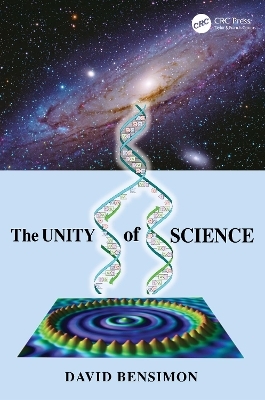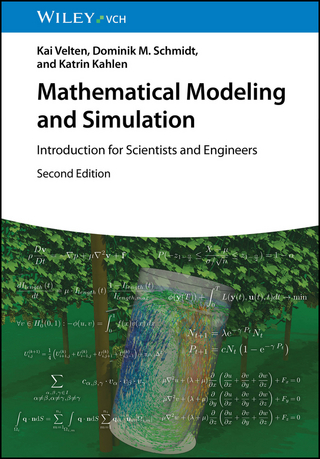
The Unity of Science
Seiten
2024
CRC Press (Verlag)
978-1-032-11241-1 (ISBN)
CRC Press (Verlag)
978-1-032-11241-1 (ISBN)
This unique overview of natural phenomena and foundations of different technologies (chemistry, electronics, optics, etc.). explores the connections and unified foundations of diverse scientific and technological fields. Requiring knowledge of linear algebra and calculus, it is ideal for students of chemistry, material sciences and engineering.
The Unity of Science presents a unique overview of natural phenomena and foundations of different technologies (chemistry, electronics, optics, etc.). It explores the connections and unified foundations of diverse scientific and technological fields. The author explains how much of Nature (at the very small and very large scales) and most of our technology can be understood/derived from a few basic principles or concepts (Newton and Coulomb’s laws, special relativity, Schrodinger’s equation and the concept of entropy).
Additional features include:
Uses a systematic derivation of Statistical Mechanics from information theory, a connection central understanding the brain and the functioning of Deep Learning networks.
Explains how combining special relativity with electrostatics allows one to understand magnetic phenomena.
Details how the unification of special relativity with QM allows one to understand the origin of anti-matter and spin (Dirac’s equation).
This book is ideal for students of chemistry, material sciences and engineering and professionals with an engineering/scientific/mathematical background.
The Unity of Science presents a unique overview of natural phenomena and foundations of different technologies (chemistry, electronics, optics, etc.). It explores the connections and unified foundations of diverse scientific and technological fields. The author explains how much of Nature (at the very small and very large scales) and most of our technology can be understood/derived from a few basic principles or concepts (Newton and Coulomb’s laws, special relativity, Schrodinger’s equation and the concept of entropy).
Additional features include:
Uses a systematic derivation of Statistical Mechanics from information theory, a connection central understanding the brain and the functioning of Deep Learning networks.
Explains how combining special relativity with electrostatics allows one to understand magnetic phenomena.
Details how the unification of special relativity with QM allows one to understand the origin of anti-matter and spin (Dirac’s equation).
This book is ideal for students of chemistry, material sciences and engineering and professionals with an engineering/scientific/mathematical background.
David Bensimon, Professor, laboratoire de Physique, ENS, Paris and dept. Chemistry UCLA, Los Angeles, CA
The Unity of Science. Classical Mechanics. Electromagnetism. Quantum Mechanics. Statistical Mechanics. Appendix.
| Erscheinungsdatum | 06.12.2021 |
|---|---|
| Zusatzinfo | 3 Tables, black and white; 69 Halftones, color; 41 Halftones, black and white; 69 Illustrations, color; 41 Illustrations, black and white |
| Verlagsort | London |
| Sprache | englisch |
| Maße | 156 x 234 mm |
| Gewicht | 721 g |
| Themenwelt | Naturwissenschaften ► Chemie |
| Technik ► Maschinenbau | |
| ISBN-10 | 1-032-11241-7 / 1032112417 |
| ISBN-13 | 978-1-032-11241-1 / 9781032112411 |
| Zustand | Neuware |
| Informationen gemäß Produktsicherheitsverordnung (GPSR) | |
| Haben Sie eine Frage zum Produkt? |
Mehr entdecken
aus dem Bereich
aus dem Bereich
Introduction for Scientists and Engineers
Buch | Softcover (2024)
Wiley-VCH (Verlag)
CHF 166,60


